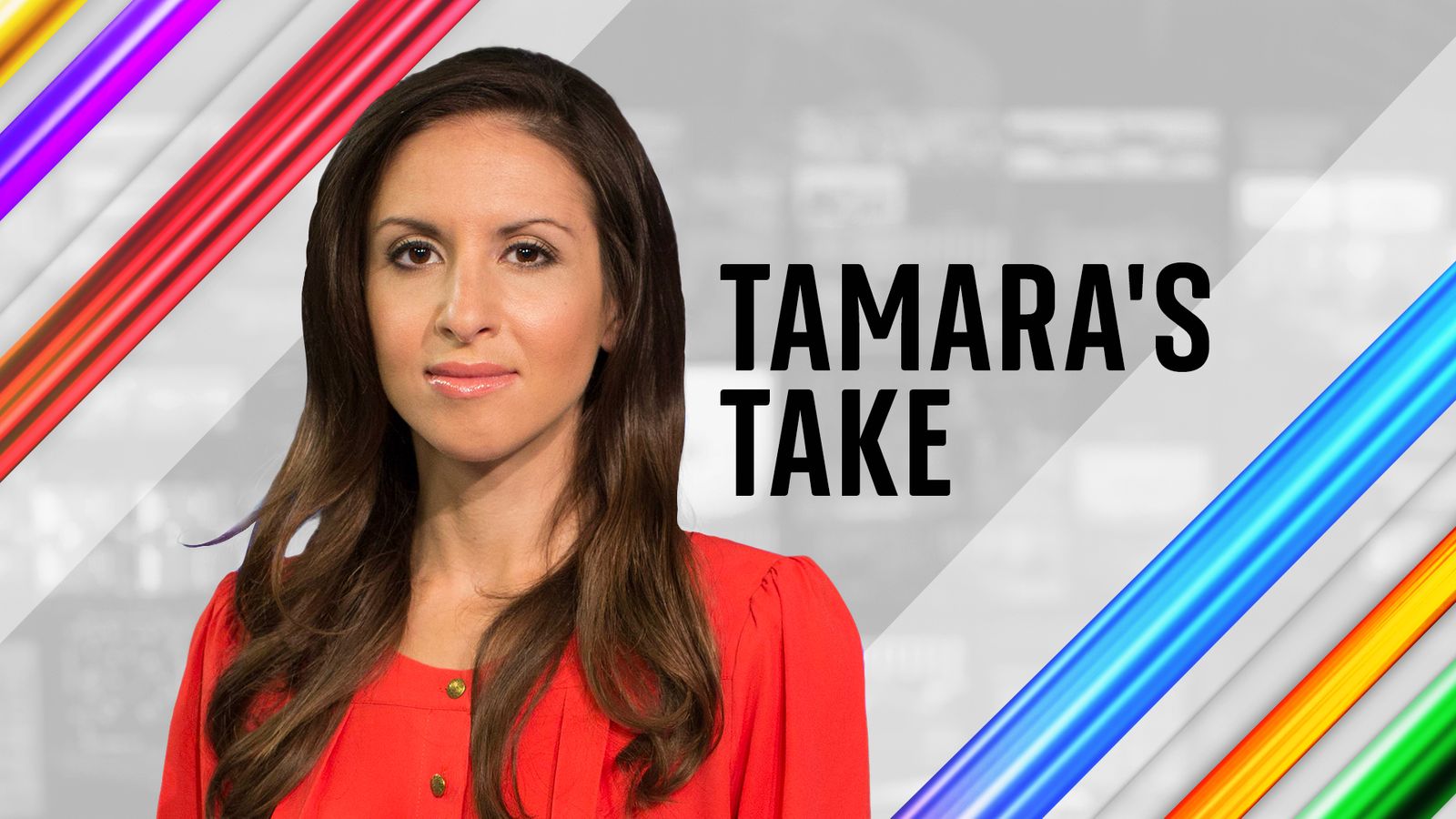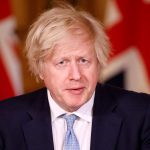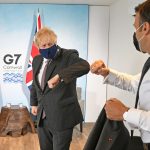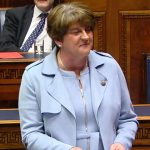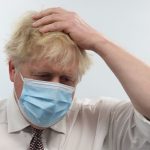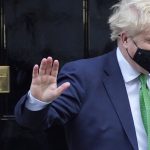A handful of cases overnight in England, then more in Scotland, and now the revelation that some of them have no link to travel – confirming community transmission of the Omicron variant. It all feels horribly familiar.
But there are crucial differences to this time last year – not just the vaccine rollout, but ministers have acted swiftly to red list several African countries and bring in domestic restrictions including a move back to mask-wearing in communal areas in secondary schools from today.
Health Secretary Sajid Javid is expected to announce an expansion of boosters to all adults later. In England, mask-wearing will be mandated in shops and on public transport, as is already the case in the rest of the UK – with £200 fines – but this won’t be extended to pubs and restaurants.
Live COVID updates from UK and around the world
Although this is already the case in Scotland, health minister Ed Argar told Sky News this is “a proportionate response” and it is not “practical” to enforce masks in venues where people are mostly eating and drinking at their tables.
Given real uncertainty around the key questions – how transmissible the variant is, how severe the disease, and how effective current vaccines will be – it is simply unclear at this stage whether this will be enough.
COVID-19: Scottish and Welsh governments demand Boris Johnson toughens travel rules further in response to Omicron variant
COVID-19: New study calls for hospitalised patients to receive quicker brain scans
COVID-19: Community transmission suspected as UK Omicron cases detected with no travel history
Mr Argar was hopeful that “we won’t need to make any further changes, hopefully in three weeks we will be able to scale back”, but many MPs sense it’s just as likely that measures will need to scale up.
Former chief scientific adviser Sir Mark Walport told Sky News the mask mandate doesn’t make sense, given that “infection happens in closed spaces, indoors, and as it gets colder people are more likely to be indoors and less likely to have the windows open, so if you are going to have them in shops it makes sense to have them in other places as well”.
Labour are expected to call for further and faster restrictions – having supported mandatory mask-wearing in all indoor settings for months, and Sir Keir Starmer backing work from home where possible, back in October.
Ministers are deeply reluctant to go down the working from home path, fearing a multi-billion-pound hit to the economy, and demands from hospitality businesses for financial support.
There have been some noises off from Conservative MPs about the lack of a vote on the latest proposed measures, which is not expected until after they come in.
Follow the Daily podcast on Apple Podcasts, Google Podcasts, Spotify, Spreaker
A Tory rebellion can be limited, while the restrictions are in the category of “largely continuing normal life”. But concern has already been raised by the former minister Steve Baker that a return to self-isolation for contacts of Omicron cases – as is expected to be brought in today – could cause “chaos” in schools if the variant spreads rapidly.
The government will now face pressure to set out their contingency plans for the worst case of a rapid and severe spread; while aware that the spectre of another “pingdemic” or worse – moves towards a lockdown – would bring considerable political fallout.
